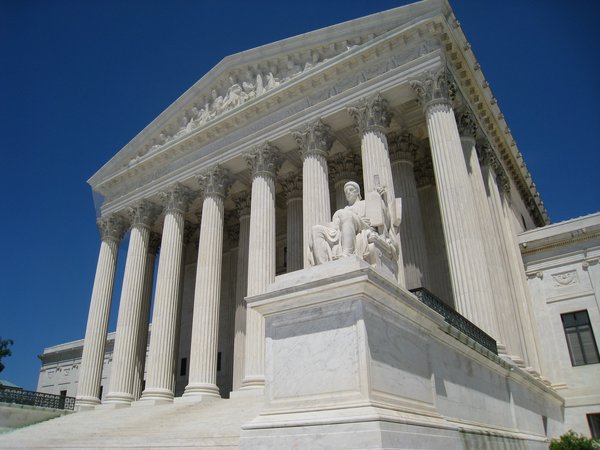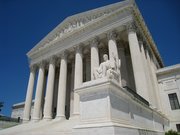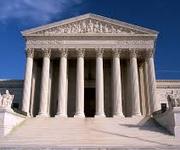Jared Kushner and Ivanka Trump made at least $82 million in outside income last year while serving in the White House, filings show

Jared Kushner and Ivanka Trump together collected tens of millions in outside income while serving in the White House last year. (Michael Reynolds/EPA-EFE/Shutterstock)
Ivanka Trump and Jared Kushner, the president’s daughter and son-in-law, brought in at least $82 million in outside income while serving as senior White House advisers during 2017, according to financial disclosure forms released Monday.
Trump earned $3.9 million from her stake in the Trump International Hotel in Washington and more than $2 million in severance from the Trump Organization, while Kushner reported over $5 million in income from Quail Ridge, a Kushner Cos. apartment complex acquired last year in Plainsboro, N.J.
The filings show how the couple are collecting immense sums from other enterprises while serving in the White House, an extraordinary income flow that ethics experts have warned could create potential conflicts of interests.
Both Kushner and Trump have given up daily oversight of their companies as they work as unpaid senior advisers to the president.
But while Kushner divested some holdings, he and his wife have maintained large stakes in businesses with domestic and foreign ties. Kushner’s family real estate company has properties around the country, including thousands of apartment units in states including New Jersey and Maryland. Trump’s eponymous clothing and accessories line is produced exclusively in foreign factories in countries such as Bangladesh, Indonesia and China.
Here's how Kushner used N.Y. real estate and the media to solidify his power.
Last year, Kushner’s assets were worth between $179 million and $735 million, while Trump’s assets were valued between about $55.3 million and $75.6 million, according to a Washington Post estimate of their filings. Some of their assets were jointly listed.
It is difficult to calculate net worth using the forms, in part because the Office of Government Ethics uses broad ranges for assets and liabilities.
In an email statement, Peter Mirijanian — a spokesman for Abbe Lowell, Kushner’s and Trump’s ethics counsel — said that the couple have followed all ethics rules and that Monday’s disclosures are an insufficient way to understand the nuances of their net worth.
“Since joining the administration, Mr. Kushner and Ms. Trump have complied with the rules and restrictions as set out by the Office of Government Ethics,” Mirijanian said. “As to the current filing which OGE also reviews, their net worth remains largely the same, with changes reflecting more the way the form requires disclosure than any substantial difference in assets or liabilities.”
In their last financial disclosure, filed in July 2017, the couple reported jointly making at least $19 million in income from business ventures and $80 million in real estate and other revenue between January 2016 and the first months of 2017.
Donald Trump's many potential conflicts of interest, explained
Because their newest filings cover a shorter period of time — the 2017 calendar year — and include some income that was previously disclosed, it is impossible to make a direct comparison to their previous reported income.
Trump earned at least $12 million last year, with the largest source of income coming from the trust that oversees her clothing brand, which paid her more than $5 million, the filings show.
The new filings reflect a change in the structure of Trump’s payments from limited-liability companies affiliated with the Trump Organization. Trump will now receive guaranteed fixed yearly payments instead of payments based on profits from three companies tied to the Trump Organization’s international projects.
The change was made in consultation with Office of Government Ethics officials to reduce her “interest in the performance of the business,” according to her filing. Her share of that payment in 2017 was $747,622, the filing shows.
Trump’s $2 million in severance came after she left the Trump Organization in January of last year when her father was inaugurated. She officially joined the White House as an unpaid senior adviser in March 2017, after her initial attempts to serve as an informal adviser raised ethics questions.
Trump was also paid a $289,300 advance by Penguin Random House for her book, “Women Who Work,” which she donated to the Ivanka M. Trump Charitable Fund to distribute grants to support women and girls.
For his part, Kushner reported drawing income from dozens of companies tied to his family’s real estate company. In all, he pulled in at least $70 million, the documents show.
Kushner disclosed that he had failed last year to report several stakes in limited-liability companies — including Vegas Seven, an online news publication in Las Vegas, and the Veggie Grill, a restaurant in Manhattan Beach, Calif. The filing noted that Kushner divested himself of his stakes before joining the White House but did not report the assets previously because of an accounting oversight.
Kushner Cos. has reported more than $2 billion in transactions in the past two years, including developments in Times Square and Jersey City. A Washington Post analysis of his holdings last year showed that Kushner had retained about 90 percent of his real estate holdings.
Before entering the White House, Kushner sold his stake in 666 Fifth Ave., the Kushner Cos.’ Manhattan building plagued by debt of more than $1 billion, to a trust controlled by his mother. (Kushner is not a beneficiary of the trust.)
In a wide-ranging interview in late May with the Real Deal, a New York City real estate publication, Kushner’s father derided ethics watchdogs as “jerks” who “can’t get a real job” and suggested that the criticism may discourage rich and successful people from taking government positions.
“I look at what my kids have sacrificed to go into government, with the only intent of doing good for this country and for the world, and to help people,” Charles Kushner told the Real Deal. “And what they have sacrificed, and the daily barrage of negative media, and the attacks they get, and they had a perfect, beautiful life and they still have a very good life, but they sacrificed a lot.”
The White House also released the financial disclosures of more than two dozen other staffers Monday.
National security adviser John Bolton reported making $2.2 million in income last year, including $569,000 from Fox News, where he was a paid contributor. Bolton also received a $240,000 salary from the American Enterprise Institute, a conservative think tank, and $155,000 from the Gatestone Institute — a group that has raised fears about Muslims in Europe, sometimes through claims that have been debunked. Bolton served as that group’s chairman.
Bolton also reported $165,000 from Counter Extremism Project United, a nonprofit entity that seeks to combat extremist groups, and $747,000 from speaking fees.
The largest speaking fees came from a foundation run by Ukrainian steel magnate Viktor Pinchuk, which paid Bolton $115,000 for speeches in September 2017 and February 2018. Pinchuk, who generally advocates for closer ties between Ukraine and the West, also donated $150,000 to President Trump’s charitable foundation in exchange for a short speech Trump made to one of Pinchuk’s conferences by video in 2015.
Bolton also reported $118,000 for speaking to large banks: Deutsche Bank paid him $72,000 for a speech in May 2017, and British bank HSBC paid him $46,000 for speeches in June and August 2017.
Christopher Liddell, the deputy chief of staff for policy coordination and a former executive at Microsoft and General Motors, reported income from capital gains and interest from investments in dozens of companies, technology projects and real estate. Liddell joined the administration during the transition and was involved with the White House Office of American Innovation, which was led by Jared Kushner.
He reported nearly 700 different securities sales involving several hundred companies, including major corporations such as Costco Wholesale, Walt Disney, Wynn Resorts, Delta Air Lines and Dow Chemical. The majority of these sales were made in February 2017, about a month after the inauguration.
Alice Crites, David A. Fahrenthold, Jack Gillum, Tom Hamburger, Michael Kranish and Michelle Ye Hee Lee contributed to this report.





